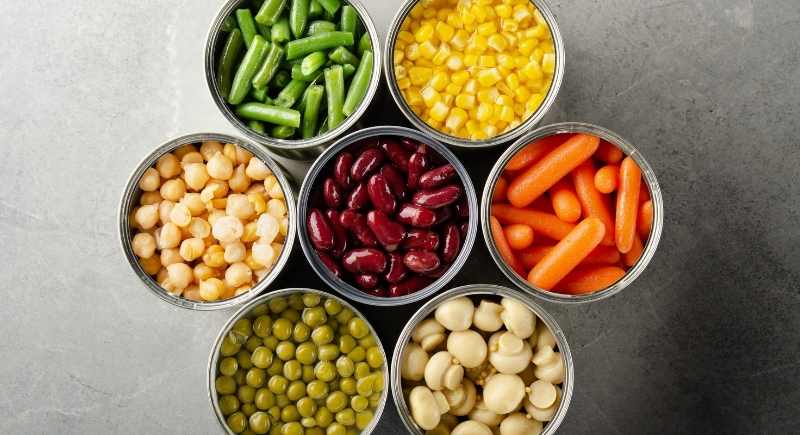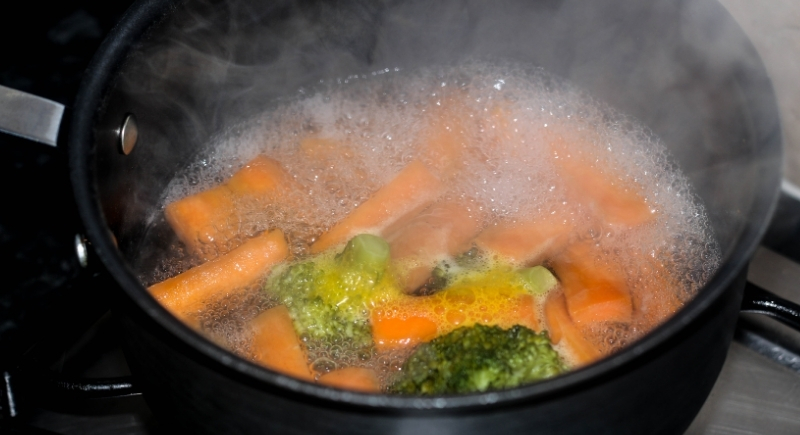5 Cooking Habits Boomers Swear By That Are Actually Terrible for You
Many home kitchens still rely on routines that were popular decades ago. Some of these habits originated from a time when different food trends, safety standards, and cooking equipment prevailed. Many people still adhere to these methods, especially in older households, yet several of them are no longer supported by current knowledge about cooking and nutrition.
Relying On Processed Convenience Foods

Image via Wikimedia Commons/Boereck
The postwar years made convenience feel modern. Canned cream soups found their way into casseroles, boxed cake mixes appeared in every pantry, and processed starters like Rice-A-Roni were used as dinner. These products lasted long after their novelty had faded. Many are still loaded with sodium, stabilizers, and fillers. They do save time, but they flatten flavor and work against balanced cooking.
Overusing Canned Vegetables

Image via Getty Images/OlenaMykhaylova
Canned vegetables appear in many older recipes because they were once the most convenient choice. The downside comes from the canning process itself. High heat turns delicate vegetables soft and drains their color. Peas, asparagus, and spinach suffer the most. These vegetables lose texture before they hit the pan.
Ignoring Basic Food Safety
Certain kitchen practices seem tied more to habit than logic. Leaving a pot of soup out overnight, keeping potato salad on the counter for hours, or washing raw chicken are still common behaviors in some households. These habits formed during a time when information was scarce, but they do not align with the recommendations of experts today. Modern food safety guidelines warn against each of these because bacteria thrive in those conditions. Washing raw chicken, especially, spreads contamination, and holding foods at room temperature creates real risks.
Overcooking Vegetables

Image via Getty Images/swanseajack999
Many people who grew up in Boomer households recall plates of soft, bland vegetables. They were supposed to be comforting, but they resulted in a whole generation of people thinking that vegetables were bland. Boiling everything until it surrendered its shape became a common practice in many kitchens. The problem is that overcooking removes flavor and breaks down nutrients. Steaming or roasting keeps vegetables closer to their natural state and helps people enjoy foods they had avoided for years.
Misusing Salt And Oil With Pasta
A recent survey from Barilla, a pasta company, highlighted a sharp generational divide around pasta basics. Only one-third of Boomers salt their pasta water, even though experts recommend about four teaspoons of salt per gallon. Salting the water seasons the pasta itself. It also prevents dishes from tasting flat. Another habit involves adding olive oil to boiling pasta water, something most seasoned cooks avoid. Oil sits on the surface, then coats the pasta when drained, which keeps sauces from gripping the noodles. A similar issue comes from snapping spaghetti in half before cooking. Long strands help sauces cling, and breaking them disrupts that balance.